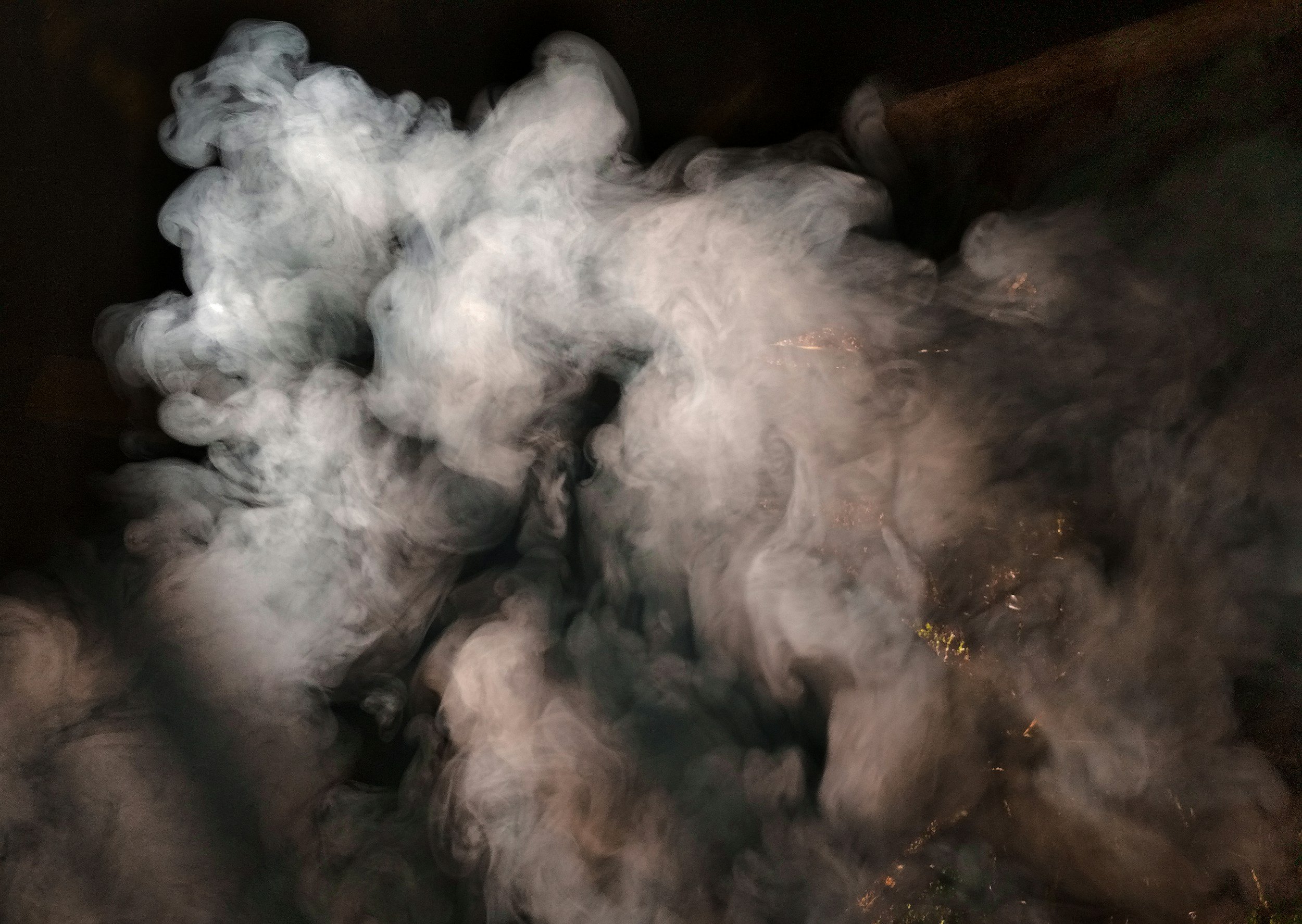
Selected Poems
Margaret Ronda
Volume Three, Issue One, “Atmospheres of Violence,” Poetry
War sonnet
The fires never ended
ragged cough in throat
downward settling earth
ash silica lead downdraft
drank in the sunless future
at strawberry field’s edge
sleeping faces barely open like a flower
the pink ashy sky grew sick, sicker
a dirty war wind lifted high
there’s warmth in the soil like life
it’s the hydraulic mining blasts
the valley air inferno
the almond orchards for miles
fever bloodstream skin

Lullaby
extend your right hand
don’t breathe in
the day overtaken by
a seamless trample
you won’t be fed
down by the factory door
the song lapsed low
she was still pinned beneath
he was a disappearance
in wayward air
along the frontage road
the notes rotting away
small boy held in foreign arms
shouted into brisk wind
borrowed clothes fit loosely
a tisket a tasket
in the shape of a bird
paper flowers or head in hands
no accidents of sunlight
you won’t be hungry
little dying song
a dollar in your pocket
in a midnight in the Panhandle
a border a sob a war story
the sun’s scathing eye
near hard barriers
border police with wraparound shades
a plastic bag with “effects”
a nursery rhyme about the north
ten tent cities in the flatlands
children march in a circle
leaves and shit the gutter

Dear friend,
I was thinking about a study that examined a series of shapes. Human musculature, sexual positions, the layout of an internment camp. How is structure different from form. Form is a man’s selfies in a thousand window displays and shards of sidewalk glass, a hundred sliced smiles. A border is a structure. Some days my eyes hurt from waking. A sound, faraway thunderstorm, pounding blood. Sometimes I was writing; sometimes I stared out windows. Sometimes there were tree shadows on white blinds or roses etched on a lampshade. I followed the patterns with my eyes, but all I saw were prisons. If you take everything out of the day there’s still a spine to it, a shape like a broken rib. I was copying down others’ words. How’s a thing held? Then I was thinking about a letter to you that would contain every shape, everything closed and open.

Fire History
When did you first see it
Do you remember where you were
Smoke blankets sky
The sun is faint, brown-red, an imaginary warmth
Subtle, mesmerizing
Beginning with a dim premonition
The breast, ears hot, skin flushes
Was the earth younger in those days
Were you alone or with others
Did you learn to build it, tend it
Shape a nest from moss, twigs, dried leaves
We were in the kitchen and the day went out
The fables passed down: a woman whose dress
Caught fire and who burned strange
The man who slung fire from his hands
A child who wept tears of flame
Some days a warning low under the breath
Little stars of ash blanket the windshield
Wonder if it will hop the freeway
The old earth burned then too
But less brightly
A living thing, tender breath
Carrying new combustible life
When the scorched wind picked up, changed course
Did you feel afraid
We read the fire book out loud
A smile on a god’s face, a seed
Time suspended when the first spark struck
Did you expel it from your mind
Does it react, grow fiercer
Do you douse the embers at night
After it dies, each fire has a story
We drove along the burned-out ridge two years later
Orange light on charred black trunks
Green shoots, California poppies in bunches
Did you store it try to keep it alive
It’s a kind of dry windy heat
It’s a flame to leap over for good fortune
It’s the scald mark on your wrist
It’s the charred hills outside Winters
Jack pine seeds cracked loose to scatter
Wood-boring insects, rosy paintbrush
Some plants love to burn
Some fires love a steep hillside of brush
The animals know when to run

Paradise
❃❃❃
Margaret Ronda is an Associate Professor in the Department of English at UC-Davis. She joined the UC-Davis faculty in 2014 after teaching in the Department of English at Rutgers University-New Brunswick. She specializes in American poetry from the nineteenth century to the present. Her critical book, Remainders: American Poetry at Nature's End (Post*45 Series, Stanford University Press, 2018), attends to the ways American poets and poems dramatize an ever-clearer sense of planetary environmental crisis by reimagining poetic genres such as pastoral and elegy. Her essay on Paul Laurence Dunbar won the William Riley Parker Prize from the MLA for the "outstanding essay" in PMLA in 2013. She has held fellowships from the American Council of Learned Societies, the Center for Cultural Analysis at Rutgers University, The Brown Foundation, and the Hellman Fellows Fund. She is the author of two books of poetry, Personification (2010) and For Hunger (2018), both published by Saturnalia Books. She serves as an associate editor for Contemporary Literature.
